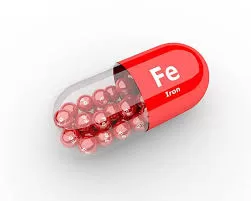Researchers at the Royal College of Surgeons in Ireland (RCSI) have made a breakthrough discovery that could revolutionize treatment options for patients with multiple myeloma (MM), a type of blood cancer that currently lacks a cure. Their study, published in Haematologica, highlights the potential benefits of combining venetoclax, a medication approved for leukemia, with another drug, offering a promising avenue for MM therapy.
Multiple myeloma affects approximately 400 individuals in Ireland each year, posing significant challenges for patients and clinicians alike. Despite recent advances in treatment, the disease remains incurable, underscoring the urgent need for innovative therapeutic approaches, particularly for patients resistant to standard care.
Led by Professor Tríona Ní Chonghaile, Associate Professor at the RCSI Department of Physiology and Medical Physics, and Professor Siobhán Glavey, Chair of the RCSI Department of Pathology and Clinician Scientist at the Beaumont RCSI Cancer Centre, the research team aimed to identify complementary drugs that could enhance the efficacy of venetoclax in MM treatment.
Previous studies had shown that venetoclax, which targets a protein called BCL-2, was only effective for a small subset of MM patients. However, by combining venetoclax with a drug called 5-azacytidine, the researchers observed a significant improvement in its effectiveness across various MM cell lines. This promising finding suggests a broader potential patient population that could benefit from the novel drug combination.
“This research marks a significant advancement in identifying more effective treatment options for multiple myeloma,” explained Professor Ní Chonghaile. “By combining venetoclax and 5-azacytidine, we’ve observed enhanced efficacy across a wide range of patient samples, demonstrating the potential of re-evaluating existing treatments in new contexts to expand their therapeutic impact.”
Professor Glavey added, “Discovering the potential of this new drug combination represents a promising development. Our next objective is to evaluate its efficacy and safety in clinical trials, bringing us closer to offering a novel treatment strategy for MM patients.”
The study also investigated the mechanism by which the two drugs work together efficiently, revealing their effectiveness in patient samples from different stages of cancer, including those previously treated with chemotherapy drugs.
Collaborating with Beaumont Hospital, Dublin; Dana-Farber Cancer Institute, Boston; and the University of Galway, the research was supported by funding from organizations including the Leukemia Research Foundation, Breakthrough Cancer Research, and AbbVie.
As the study paves the way for further exploration of this promising drug combination, researchers hope to translate their findings into tangible benefits for MM patients, offering renewed hope in the fight against this challenging disease.












